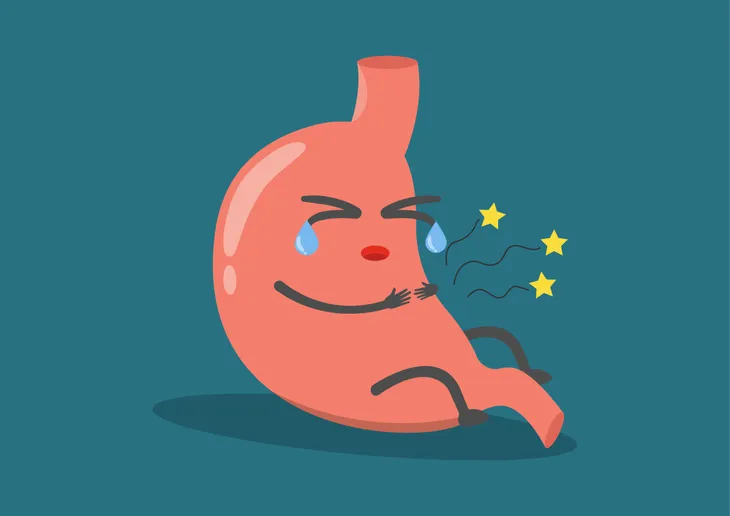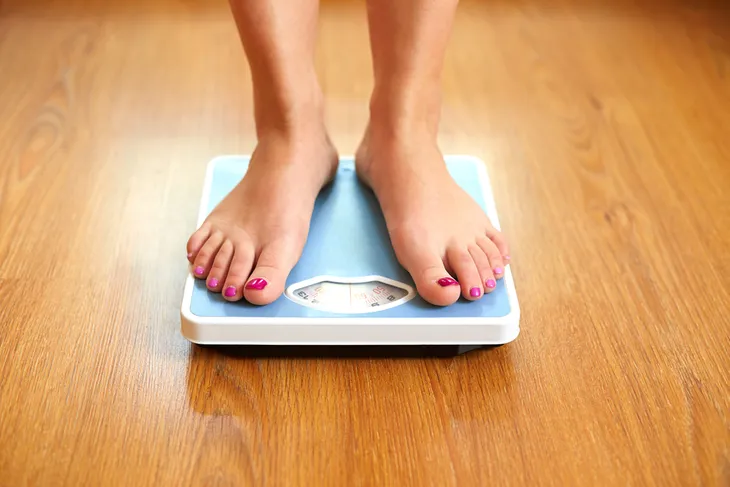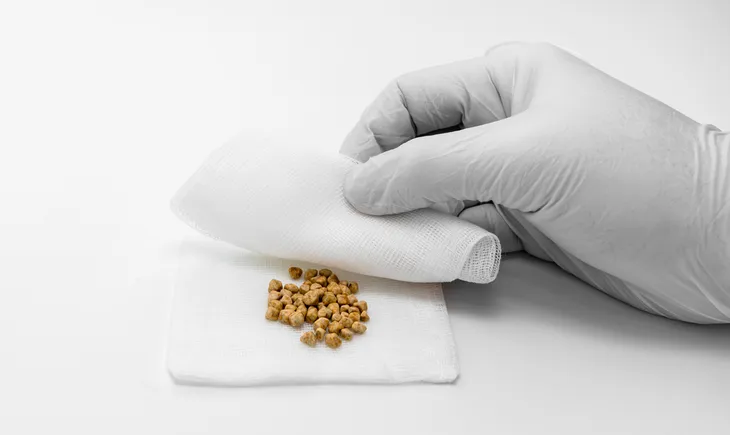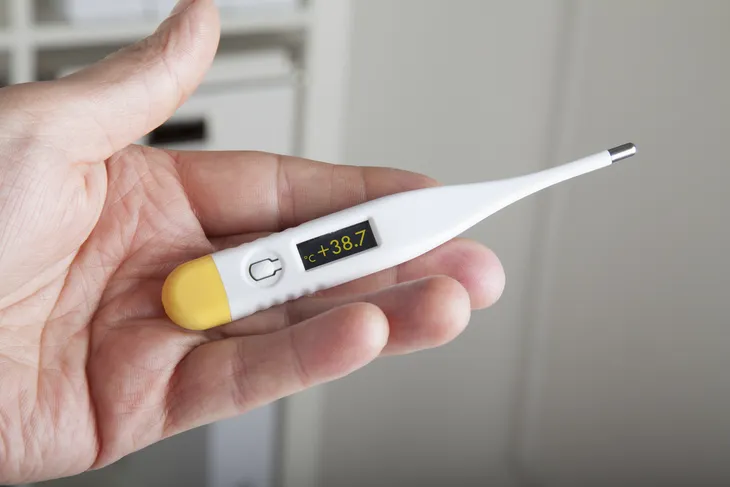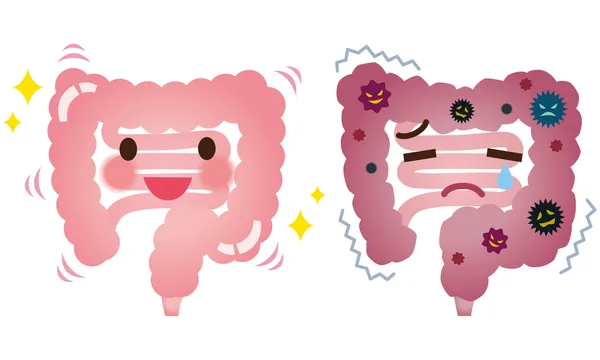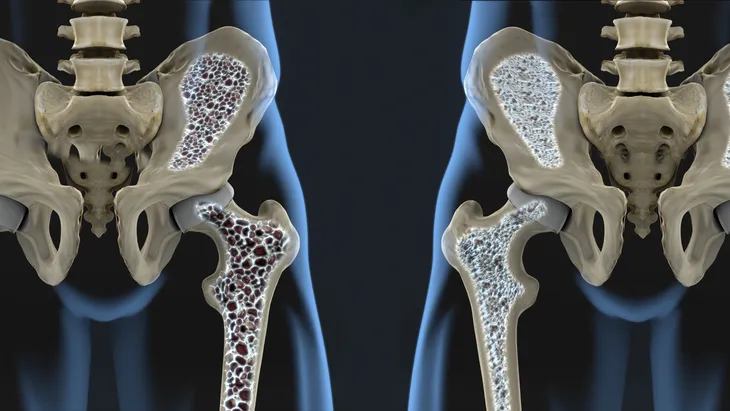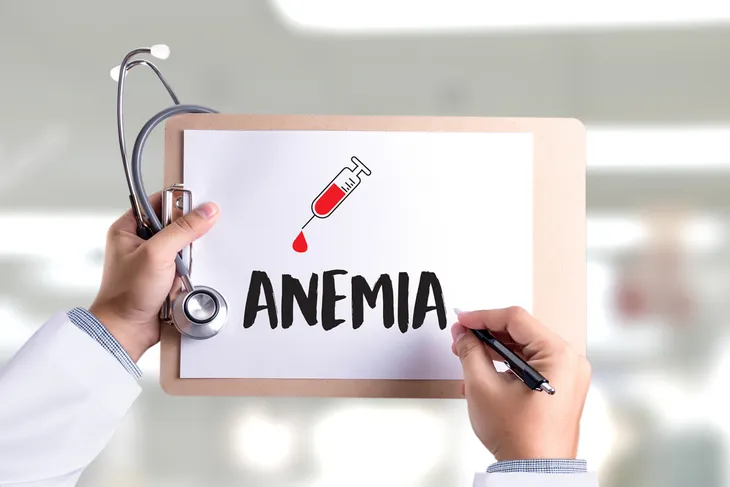Crohn’s disease is a chronic, painful inflammatory condition that affects approximately 700,000 Americans. It is caused by a combination of factors, including bacterial, environmental, immunological, and genetic.
In Crohn’s disease, the affected person’s immune system attacks the intestines. It was previously thought of as an autoimmune disease, but recent research has reclassified it as a state of immune deficiency.
There is no known cure of Crohn’s disease, but there are a variety of treatment options. The treatments look to control inflammation and prevent relapse of the severe symptoms. Many of the symptoms of Crohn’s disease are gastrointestinal (GI) in nature, but the entire body can be affected.
Here are 20 common symptoms of Crohn’s disease…
1. Abdominal Pain
Abdominal pain may be one of the first symptoms of Crohn’s disease. As the intestines become inflamed and irritated, the bowels send pain signals to the brain. This inflammation and irritation can affect how food moves through the digestive tract, which causes pain from the cramping of the muscles in the digestive system, according to Dr. Axe.
“Muscles within the intestinal walls are prone to spasms when they become inflamed, which causes contractions that contribute to Crohn’s disease symptoms ranging from light discomfort to severe pain,” writes the source.
2. Abdominal Cramping
In patients with severe Crohn’s disease, painful cramping may be common. As the disease progresses, scar tissue can form around the intestines. As the person eats and the intestines shift, the scar tissue can pull, causing incredibly painful cramping. The person may also feel nauseated and vomit because of the pain. This can make a Crohn’s sufferer lose the desire to eat, as they become violently ill when they do. Bloating and flatulence in relation to Crohn’s disease can also cause abdominal cramping.
3. Diarrhea
When Crohn’s disease affects the intestines, it causes them to pump out water and electrolytes. This mixes with stool, causing diarrhea. If the large intestine is affected, diarrhea may be small in quantity but affect the sufferer numerous times a day. If the small intestine is affected, diarrhea may be very large in quantity but affect the sufferer less frequently. Even people who suffer from a mild case of Crohn’s disease will still produce about 4 to 6 bowel movements per day, and those with severe Crohn’s will have 6 or more bowel movements per day, says Dr. Axe.
If you suffer from frequent diarrhea, you may become dehydrated because of the loss of liquids. “Fluid loss associated with diarrhea is a risk factor for dehydration, electrolyte imbalances, and other complications,” writes the source. “Experts believe that the reason frequent diarrhea occurs in people with Crohn’s is because their intestines respond to inflammation by producing extra salt and water, which overwhelms the capacity of the intestines to absorb enough fluid to give stool bulk,” additionally writes the source. Be sure to rehydrate with not only water but also salts and minerals.
4. Bloody Stools
Bloody stools are a disconcerting symptom of Crohn’s disease. As the inflammation of the bowels cause ulcers (open sores) in the intestines, blood may mix with the stool. If the blood comes from high in the GI tract, the stool may appear black in color. If the blood comes from low in the GI tract, the blood may be bright red. “As food moves through the inflamed intestines, it can aggravate tissue and cause bleeding,” says Dr. Axe. “You might notice bright red blood in the toilet bowl or darker blood mixed with your stool. It’s also possible to have bleeding inside the GI tract that isn’t visible within stool,” adds the source.
If you experience any type of bloody stool, contact your doctor immediately.
5. Frequent Defecation
With chronic diarrhea, a Crohn’s disease sufferer may experience very frequent defecation. It may be upwards of 20 times per day, even waking the person up at night. Very frequent defecation brings a host of related conditions. Hemorrhoids are common, and prolonged Crohn’s attacks can bring on fecal incontinence. The rectum may also suffer from abscesses (collections of pus) and fistulas (abnormal connections between parts of the body). These too can cause fecal incontinence.
6. Weight Loss
Crohn’s disease can affect the growth of children who are affected. Crohn’s can cause nutrient malabsorption, which can stunt the growth of young individuals if manifested before puberty. In an adult, Crohn’s disease can also cause weight loss. This is caused by the refusal of food by a Crohn’s sufferer. The affected individual may feel much better when not eating as their digestive symptoms temporarily cease. An affected individual may also fail to absorb carbohydrates and fat, thus excreting them and not absorbing the calories.
7. Arthritis
A person with Crohn’s disease has a higher chance of seronegative spondyloarthropathy (joint disease of the spinal column). This disease affects the skeleton and resembles the symptoms of rheumatoid arthritis. According to the Crohn’s & Colitis Foundation of America, up to 25-percent of people with Crohn’s will also develop arthritis.
“This arthritis risk is highest in the larger joints, such as the knees, elbows, and wrists, which is called peripheral arthritis,” says Nirmal Kaur, MD, director of the Inflammatory Bowel Disease Center at Henry Ford Health System in Detroit, to Everyday Health. But arthritis can show up anywhere in people with Crohn’s disease. Large joints, such as those around the shoulders, knees, and hips, may be affected by inflammation. Conversely, the small joints of the hands and feet may be affected. This type of disease also affects the spine, limiting motion and body function.
8. Eye Pain
Vision troubles can accompany Crohn’s disease. These eye problems can have permanent consequences if not treated. They can leave you blind. One condition called episcleritis affects the white part of the eye. Another condition, called uveitis, affects the interior of the eye. Both conditions are a result of inflammation. If you have or think you may have Crohn’s disease and are experiencing eye swelling, pain, or loss of vision, contact your doctor right away.
9. Gallstones
Crohn’s disease may affect the ileum, which is the last part of the small intestine. Its function is to absorb both vitamin B12 and bile salts. When Crohn’s disease affects the ileum, the bile salts are not absorbed and thus are excreted. The gallbladder then has an unbalanced ratio of cholesterol to bile, causing distress and eventually gallstones (as well as diarrhea). A gallstone attack is very painful, resembling the symptoms of a heart attack. at times
10. Skin Issues
Crohn’s disease may manifest in the skin of an affected individual. It can cause blood clots, resulting in deep vein thrombosis (DVT). There are two main skin manifestations: erythema nodosum and pyoderma gangrenosum. Erythema nodosum causes red nodules on the shins of the afflicted individual. Pyoderma gangrenosum causes ulcers in the form of necrotic (dead) tissue. It is common on the legs but can form anywhere on the body. Both conditions start with superficial small imperfections but grow to be large and painful. “These conditions are caused by the inflammatory process of Crohn’s disease, and the treatment for them is to treat the Crohn’s disease, sometimes along with topical therapy by a dermatologist,” says Dr. Kaur to Everyday Health.
Another common skin condition caused by Crohn’s disease is psoriasis. It causes silvery scaly patches on the skin and is actually an inflammatory disease that has been linked to arthritis and Crohn’s disease through psoriatic arthritis, an inflammatory joint disease caused by bone and joint damage, says the source. There have also been instances of the medication used to treat Crohn’s increasing the risk of skin cancers (melanomas and non-melanomas).
11. Nausea and Vomiting
People suffering from Crohn’s can sometimes experience nausea and vomiting. Dr. Axe explains that this is because of scar tissue that forms inside the GI tract, which causes swelling and blocks channels where food is supposed to pass through. “This can be responsible for stomach aches, vomiting, acid reflux and reduced appetite,” writes the source.
12. Fever
It’s not uncommon for people with Crohn’s to experience a low-grade fever, which is most likely due to inflammation or infection, says Dr. Axe.
SELF goes into further explanation by stating that someone with Crohn’s won’t be burning up constantly, but rather their temperature will show little spikes here and there when their digestive tract is going through a flare-up. “Fever is one sign that your body’s immune system has activated in response to a threat, and this can happen because of inflammation tied to Crohn’s disease,” writes the source.
13. Fatigue
On top of all the other uncomfortable symptoms on this list, someone suffering from Crohn’s will also struggle with fatigue. This is because their body is constantly struggling to fight off inflammation, with the body’s immune system depleting your energy levels. The biggest culprit of fatigue is diarrhea, says Ashkan Farhadi, MD, a gastroenterologist at MemorialCare Orange Coast Medical Center and director of MemorialCare Medical Group’s Digestive Disease Project in Fountain Valley, CA to SELF.
“When you have diarrhea, your body doesn’t absorb the nutrients you eat as well as it should and that can affect your overall health,” writes SELF after talking to Jessica Philpott, MD, Ph.D., a gastroenterologist who specializes in treating inflammatory bowel disease at the Cleveland Clinic. “This can possibly even lead to issues like anemia and dehydration, both of which can make you feel tired.” Lastly, Crohn’s sometimes keeps people up at night, which also contributes to their overall feeling of fatigue.
14. Perianal Disease
Perianal disease can occur in patients with Crohn’s disease and is often due to inflammation at or near the anus (the opening at the end of the GI tract). It can cause fistulas, tags, abscesses, or stenoses and results in pain, itching, bleeding, discharge, and diarrhea.
“You might have pain or drainage near or around the anus due to inflammation from a tunnel into the skin, which is called a fistula,” writes Dr. Axe. “Fistulas cause abnormal connections between different organs and sometimes cause food particles to make their way to the colon before they normally should,” additionally writes the source.
15. Osteoporosis
This might seem like a strange symptom for a condition that largely affects the GI tract, but Crohn’s disease can increase a person’s risk of developing osteoporosis (thinning and weakening of bone, making sufferers more prone to bone fractures). “People with Crohn’s disease are at a higher risk for osteoporosis than the general population is,” says Mariam Fayek, MD, attending physician in the Center for Women’s Gastrointestinal Health at Women & Infants Hospital of Rhode Island in Providence, when talking to Everyday Health. “The chronic inflammation of Crohn’s disease leads to increased bone loss, and people with Crohn’s are also more likely to be vitamin D deficient, both of which contribute to osteoporosis risk,” additionally writes the source.
The source then goes on to explain that a vitamin D deficiency tends to occur in those with Crohn’s disease because the portion of their bowel that is supposed to absorb vitamin D is diseased. Also, people with this condition are often prescribed steroids as treatment, which causes further thinning of the bones.
16. Mouth Sores
Yet another uncomfortable and painful symptoms of Crohn’s disease are mouth sores, as well as ulcers in the stomach, esophagus, mouth and anus. These are caused by chronic inflammation and result in open sores that cause a burning sensation, says Dr. Axe. “Most often ulcers form in the lower small intestine, the colon, and the rectum,” adds the source.
Both Dr. Axe and Everyday Health point out that, while canker sores aren’t as common as sores in the mouth and rectum, they can occur during Crohn’s flares and are often seen either on the bottom of the tongue or on the gums. “These are often a side effect of a rundown immune system and inflammation that has spread to other tissues,” notes Dr. Axe.
17. Migraine
Yet another symptom caused by inflammation are migraines. “Some people with Crohn’s disease or ulcerative colitis [the only other form of inflammatory bowel disease] can get migraine headaches, which are thought to be rooted in inflammation,” writes Everyday Health. “Once people take medications for other symptoms of Crohn’s disease, their migraine headaches usually improve,” adds the source.
18. Anemia
Anemia is caused by the inflammation of Crohn’s disease. “[It] is characterized by a lower-than-average number of red blood cells in the body or a lower-than-average amount of hemoglobin, an iron-packed protein that helps shuttle oxygen from the lungs to the tissue, in the cells themselves,” writes Health.com. Basically, anemia causes a lack of oxygen throughout the body, which results in fatigue, breathlessness, and more.
Because Crohn’s disease affects the part of the intestine responsible for absorbing B vitamins, patients often have a folate or B12 deficiency, which then leads to anemia, as well as low iron levels, says Sylvia Morrisa, MD, a board-certified internist in Atlanta and U.S. News & World Report contributor, to Reader’s Digest.
19. Abdominal Swelling
Abdominal swelling is often one of the first symptoms to appear and is more than just your average bloating. “This swelling will be firm and around the size of a small grapefruit,” says Aaron Braun, MD, medical director at Signature Care Emergency Center in Houston, when talking to Reader’s Digest. “Patients have reported pain ranging from mild to extreme, and abscesses can sometimes form in the area contributing to the tenderness,” writes the source.
20. Developmental Delays
People who develop Crohn’s during childhood might experience some developmental delays in terms of growth and/or sexual development. “This is due to immune system dysfunction and the inability to absorb a normal amount of vital nutrients,” explains Dr. Axe. “Blood loss and fluid loss are other symptoms that can cause complications in children with Crohn’s,” writes the source.
Crohn’s Disease Tests
To diagnose Crohn’s disease, your doctor will first rule out other possible causes after reviewing your symptoms. Then, to confirm a diagnosis your doctor may need to perform a variety of tests.
For example, your doctor may request a blood test to check for anemia or signs of infection. They may also request a stool sample to “test for hidden (occult) blood or organisms, such as parasites, in your stool,” says the Mayo Clinic.
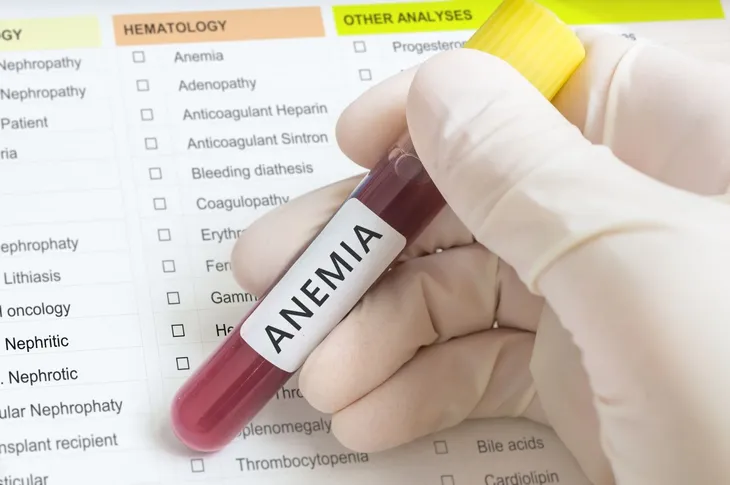 vchal / Shutterstock
vchal / ShutterstockOther Crohn’s Disease Tests
There are a variety of other tests and procedures your doctor may also require to confirm a diagnosis of Crohn’s disease. These may include a colonoscopy, computerized tomography (CT) scan, magnetic resonance imaging (MRI) scan, capsule endoscopy, or a balloon-assisted enteroscopy.
The Mayo Clinic explains there is not one single test to diagnose Crohn’s disease but instead, your doctor will likely use a combination of tests.



